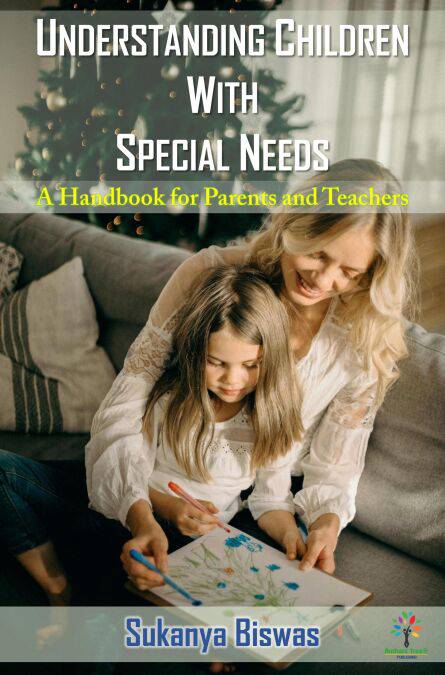
- Retrait gratuit dans votre magasin Club
- 7.000.000 titres dans notre catalogue
- Payer en toute sécurité
- Toujours un magasin près de chez vous
- Retrait gratuit dans votre magasin Club
- 7.000.000 titres dans notre catalogue
- Payer en toute sécurité
- Toujours un magasin près de chez vous
Understanding Children with Special Needs: A Handbook for Parents and Teachers EBOOK
children/parential/educational/acadamic, #1
Sukanya BiswasDescription
This handbook is an attempt to provide answers to those innumerable questions that plaque the minds of teachers and parents alike, about children who need special attention. It is a modest attempt to Psycho-educate parents and teachers in general and create awareness of differently abled children and their learning process.
Before the world can change its perception of 'special needs' and 'disabilities', one needs to understand what the terms mean and how children with special needs are different. Gone are the days when lack of information caused everyone to tiptoe around these conditions. In theory, the term 'special needs' is used to clinically diagnose mental, physical or psychological disabilities that give rise to functional difficulties. However, in lay terms, 'special needs' becomes an umbrella term for a staggering array of conditions. Children who are diagnosed with having special needs may be suffering from a mild learning problems to a major, degenerative illness.
Parenting a child is a complicated task, more so when the child has special needs. The objective of this handbook is to enable parents to support, love and care for their child, regardless of the disabilities involved. Some parents may be hesitant to share their child's diagnosis with the teacher. This may seem odd, but parents struggling to figure out how they can help their child and sometimes themselves, may be afraid of a teacher's judgment or the treatment their child will receive once a special need has been identified. Parents are also often afraid of being blamed, and usually have an unhealthy dose of guilt themselves, even after being reassured that the disability is not their fault. The relief comes from knowing what is wrong with their child and having an appropriate plan of action.
In this book, I have focused on children with a diagnosed special needs and have shared few strategies of handling these concerns, which includes a set of resources for parents as well as teachers. There is no "one size fits all" approach to special education. It's tailored to meet each student's needs. Special education refers to a range of services that can be provided in different ways and in different settings. It can be challenging to select instructional materials and methods, which will enrich student learning. The key is first understanding the needs of every student. In particular, all teachers need to understand how to provide help for students with special needs. Special education is a rewarding field with many benefits and challenges. As a teacher in this field, you'll face a variety of obstacles that require a particular kind of focus and patience, but within those experiences, you'll also receive a feeling of accomplishment.
Spécifications
Parties prenantes
- Auteur(s) :
- Editeur:
Contenu
- Langue:
- Anglais
- Collection :
Caractéristiques
- EAN:
- 9788195077519
- Date de parution :
- 28-03-21
- Format:
- Ebook
- Protection digitale:
- /
- Format numérique:
- ePub







